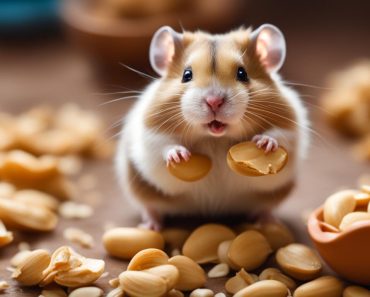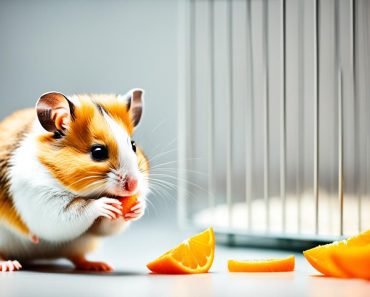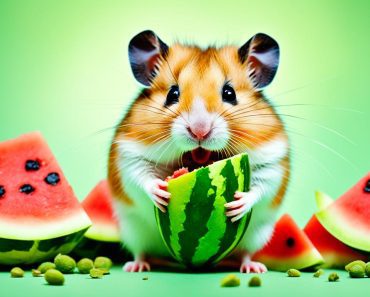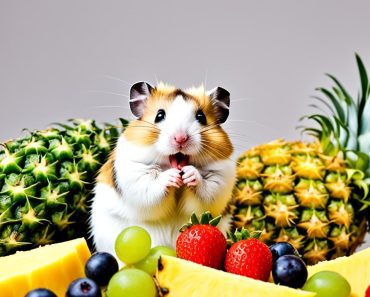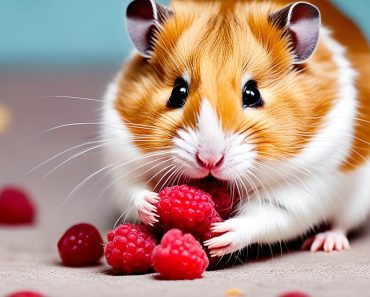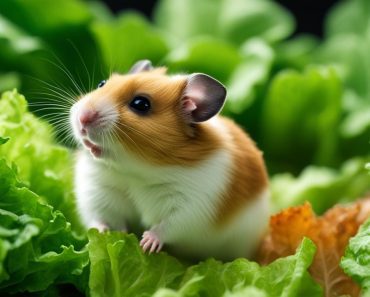Hamsters can indeed eat sunflower seeds, and they are often a favorite treat for these furry little pets. While sunflower seeds can be a part of a hamster’s diet, moderation is key due to their high fat content. Feeding your hamster sunflower seeds in excess can lead to potential health issues such as obesity. Let’s delve into the specifics to understand how sunflower seeds fit into a hamster’s diet and the benefits and potential dangers they present.
Can Hamsters Eat Sunflower Seeds? Yes, every once in a while.
- Sunflower seeds can be safely fed to hamsters in moderation.
- Feeding hamsters sunflower seeds in excess can lead to obesity.
- Sunflower seeds provide certain nutritional benefits but should supplement a well-rounded hamster diet.
- A balanced diet and portion control are crucial for a hamster’s overall health.
- Other seeds, such as pumpkin seeds, chia seeds, and flaxseeds, can also be offered as treats in moderation.
Sunflower Seeds as a Hamster Treat: Nutritional Benefits and Risks
Sunflower seeds can provide certain nutritional benefits to hamsters when offered as a treat. They are rich in vitamins and minerals like vitamin E, zinc, selenium, and vitamin B6, which can contribute to your hamster’s overall health. These nutrients play important roles in promoting a strong immune system, healthy skin and fur, and proper brain function for your furry friend.
However, it is important to note that sunflower seeds should be given in moderation due to their high fat and calorie content. While hamsters do require a higher amount of fat in their diet compared to other small pets, excessive consumption of sunflower seeds can lead to weight gain, obesity, and potential health issues.
High Fat Content: Sunflower seeds have a relatively high fat content, which can contribute to weight gain. Hamsters have a tendency to overeat when it comes to delicious treats like sunflower seeds, so it is crucial to regulate their intake to maintain a healthy weight.
Potential Health Issues: Feeding hamsters excessive sunflower seeds can lead to various health issues. Obesity not only puts strain on their joints and can affect their mobility, but it can also increase the risk of diabetes and other metabolic disorders. Additionally, a diet high in sunflower seeds may cause gastrointestinal upset and digestive problems for hamsters.
It is crucial to strike the right balance when incorporating sunflower seeds into your hamster’s diet. While they can provide nutritional benefits, it’s best to offer them as a small part of a well-rounded and balanced diet. Consider sunflower seeds as an occasional treat rather than a staple in their daily meals.
Now that we understand the nutritional benefits and potential risks of feeding sunflower seeds to hamsters, let’s explore the importance of a balanced hamster diet and how to ensure your furry friend’s health and well-being.
The Importance of a Balanced Hamster Diet
A balanced diet is crucial for the overall health and well-being of a hamster. While sunflower seeds can be a tasty treat for hamsters, they should not make up a significant portion of their diet. Hamsters require a primarily pellet-based diet that is supplemented with fresh vegetables and occasional fruits.
Seeds, including sunflower seeds, should only be offered as a supplement or treat. A diet high in fat and calories can lead to obesity and related health issues, such as diabetes, in hamsters. It is important to provide a variety of foods to meet all of a hamster’s nutritional needs.
To maintain a balanced diet, hamsters should primarily consume a pellet-based diet formulated specifically for their nutritional needs. These pellets contain essential vitamins, minerals, and nutrients that support their overall health. It is important to choose high-quality pellets that are specifically designed for hamsters.
Additionally, incorporating fresh vegetables into a hamster’s diet is essential. Vegetables provide crucial vitamins and minerals that contribute to their well-being. Some suitable vegetables for hamsters include carrots, broccoli, spinach, and kale. However, it is important to introduce new vegetables gradually and in small amounts to prevent digestive issues.
Furthermore, offering occasional fruits as treats can provide hamsters with additional nutrients and variety. Suitable fruits include apples, pears, and berries. However, fruits should be given in moderation due to their higher sugar content. Excessive sugar intake can lead to health issues, such as obesity and dental problems.
It is important to note that hamsters have specific dietary needs and should not be fed human food. Many foods that are safe for humans can be harmful to hamsters. It is crucial to research and consult a veterinarian to ensure that the foods offered to hamsters are safe and appropriate for their consumption.
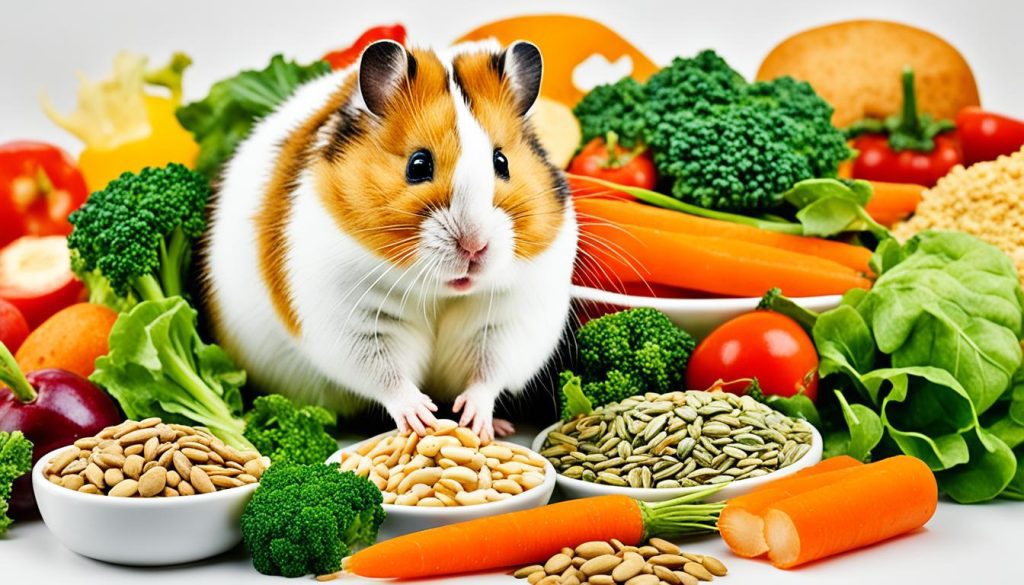
Sunflower Seeds and Hamster Nutrition: Facts to Consider
Sunflower seeds can play a role in a hamster’s nutritional intake, but it’s important to be mindful of their consumption. These tiny seeds are rich in several nutrients that can benefit hamsters, such as vitamin E, a vital antioxidant that supports overall health. However, it’s crucial to keep in mind that sunflower seeds are also high in fat and calories, so they should be offered in moderation as part of a well-balanced diet.
While sunflower seeds are a source of healthy fats for hamsters, excessive consumption can contribute to weight gain and potential health issues. If a hamster’s diet primarily consists of sunflower seeds, it may result in deficiencies in other essential nutrients. Thus, it’s essential to provide a varied diet that includes a range of foods to meet the hamster’s nutritional needs.
Avoid offering an excessive amount of sunflower seeds to your hamster. Instead, incorporate them into their diet as part of a balanced meal plan. Remember to consult a veterinarian or professional hamster nutrition resource for guidance on the appropriate portion sizes of sunflower seeds for your specific hamster breed and size.
Providing a diverse and well-rounded diet ensures that your hamster receives all the necessary nutrients they need to thrive. Consider rotating other healthy treats and foods, such as fresh vegetables and occasional fruits, to create a balanced and enjoyable meal plan for your furry friend.
Moderation and Portion Control for Hamsters
When it comes to feeding sunflower seeds to your hamster, moderation and portion control are essential. As much as we love giving our furry friends treats, it’s important to avoid overindulging them. The recommended amount of sunflower seeds for your hamster depends on their size and breed.
Larger hamsters, like Syrians, can safely consume around four sunflower seeds per day. However, for Robo hamsters, it’s best to limit their intake to about two seeds daily. Dwarf hamsters, being smaller and more prone to obesity, should be given just one sunflower seed every other day.
By practicing portion control, you can prevent your hamster from consuming excessive calories and fat that could potentially lead to obesity and related health problems. Providing the appropriate serving size of sunflower seeds will help keep your pet happy, healthy, and at an optimal weight.
The Importance of Preventing Obesity in Hamsters
Obesity is a serious concern for hamsters and can have detrimental effects on their overall health and well-being. Excessive weight gain can lead to a range of health issues, including diabetes and joint problems.
By closely monitoring the amount of sunflower seeds and other treats you offer your hamster, you can help prevent obesity and ensure they maintain a healthy weight. Remember, a healthy hamster is a happy hamster!
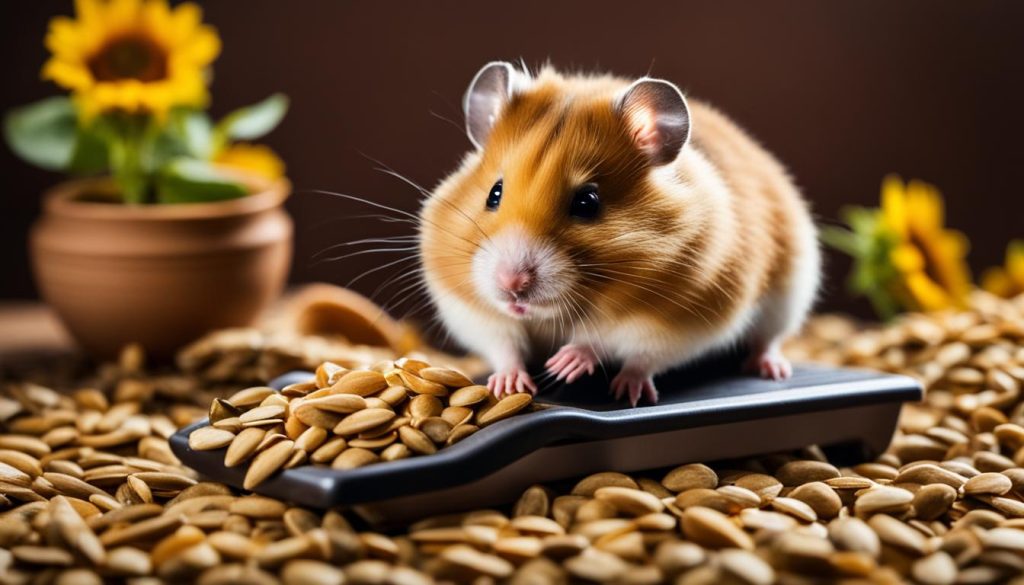
Other Seeds for Hamsters
In addition to sunflower seeds, there are other seeds that can be offered to hamsters as occasional treats. These seeds provide a variety of nutrients and flavors for your furry friend to enjoy. Let’s explore some safe options:
Pumpkin Seeds
Pumpkin seeds are a tasty and nutritious choice for hamsters. They contain essential nutrients like protein, fiber, and vitamins. Additionally, pumpkin seeds can promote healthy digestion and support your hamster’s immune system.
Chia Seeds
Chia seeds are packed with omega-3 fatty acids, which are beneficial for a hamster’s heart and brain health. They also provide fiber and protein. Adding a small amount of chia seeds to your hamster’s diet can be a great way to enhance their overall nutrition.
Flaxseeds
Flaxseeds are another excellent seed option for hamsters. They are rich in omega-3 fatty acids and fiber, which can aid in digestion and promote a healthy coat. However, it’s important to grind the flaxseeds before offering them to your hamster to ensure optimal digestion.
Hemp Seeds
Hemp seeds are a good source of protein and essential fatty acids for your hamster. They also contain vitamins and minerals that contribute to overall health. However, it’s crucial to feed hemp seeds sparingly due to their high fat content.
Sesame Seeds
Sesame seeds are a flavorful and nutritious addition to your hamster’s diet. They contain calcium, iron, and antioxidants. Offering a few sesame seeds as a treat can provide variety and add extra nutrients to your hamster’s meals.
Conclusion
Sunflower seeds can be a tasty and nutritious addition to your hamster’s diet when given in moderation. While they are high in fat and calories, incorporating them as a treat can provide certain benefits to your furry friend. It is essential to remember, however, that sunflower seeds should not be the main focus of your hamster’s diet.
Portion control is key to prevent potential health issues such as obesity. By offering a well-balanced diet that includes pellet-based food, fresh vegetables, and occasional fruits, you can ensure your hamster receives all the necessary nutrients for optimal health. Remember, a balanced diet plays a crucial role in promoting your hamster’s overall well-being.
So, when it comes to feeding sunflower seeds to your hamster, remember to do so in moderation and as part of a diverse diet. Your furry friend will appreciate the occasional treat, and you can rest assured knowing that you are providing them with a balanced and nutritious meal plan. Keep your hamster healthy, happy, and thriving with a diet that strikes the perfect balance!

